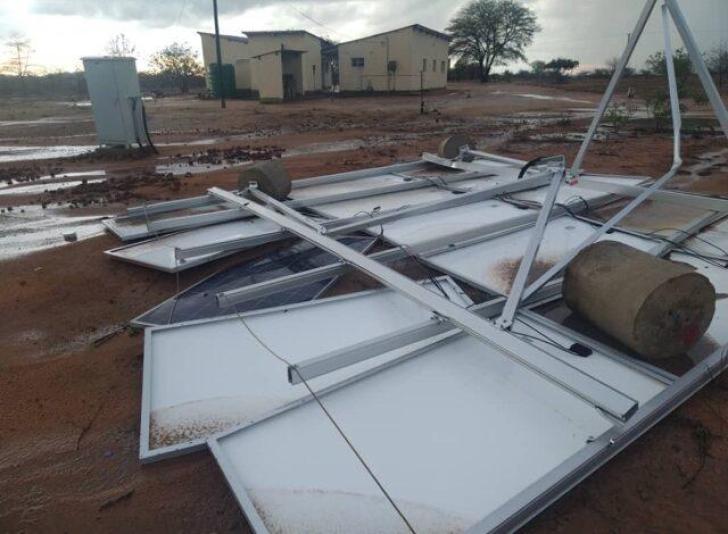News / National
Heavy rains wreak havoc at clinic, patients at risk
22 Nov 2024 at 15:45hrs |
0 Views

Saphila Clinic in Insiza South has been forced into a healthcare crisis after heavy rains destroyed its solar panels, leaving the facility without power and severely disrupting operations.
Ward 5 Councillor Ngobe Masonga confirmed the incident, describing the damage as a significant blow to the community.
"The solar panels were severely damaged, disrupting healthcare services and putting patients' lives at risk," Masonga said.
The 1500-kilovolt solar system, comprising 15 panels with an input capacity of 335 watts each, sustained extensive damage. Four panels were completely destroyed, six partially damaged, and only five remain operational.
The loss of power has had far-reaching consequences for the clinic.
"There is no backup power. The clinic now lacks a reliable energy source, rendering the Electronic Health Record (EHR) system non-functional," said Masonga.
Nighttime emergencies have become particularly challenging, with the power outage affecting essential services. The storage and supply of temperature-sensitive medicines, such as vaccines, have also been jeopardized.
Two staff members who witnessed the incident confirmed the extent of the damage caused by the torrential rains.
Councillor Masonga urged authorities to act swiftly to resolve the crisis, highlighting the clinic's vital role in the community.
"Saphila Clinic serves a significant population, and prolonged disruptions to healthcare services can have dire consequences," he said.
He called for immediate repairs to the solar system or the provision of alternative power solutions to restore essential services.
The incident underscores the vulnerability of rural healthcare facilities to extreme weather events and the critical need for resilient infrastructure to ensure uninterrupted service delivery.
Ward 5 Councillor Ngobe Masonga confirmed the incident, describing the damage as a significant blow to the community.
"The solar panels were severely damaged, disrupting healthcare services and putting patients' lives at risk," Masonga said.
The 1500-kilovolt solar system, comprising 15 panels with an input capacity of 335 watts each, sustained extensive damage. Four panels were completely destroyed, six partially damaged, and only five remain operational.
The loss of power has had far-reaching consequences for the clinic.
"There is no backup power. The clinic now lacks a reliable energy source, rendering the Electronic Health Record (EHR) system non-functional," said Masonga.
Two staff members who witnessed the incident confirmed the extent of the damage caused by the torrential rains.
Councillor Masonga urged authorities to act swiftly to resolve the crisis, highlighting the clinic's vital role in the community.
"Saphila Clinic serves a significant population, and prolonged disruptions to healthcare services can have dire consequences," he said.
He called for immediate repairs to the solar system or the provision of alternative power solutions to restore essential services.
The incident underscores the vulnerability of rural healthcare facilities to extreme weather events and the critical need for resilient infrastructure to ensure uninterrupted service delivery.
Source - cite
Join the discussion
Loading comments…



























